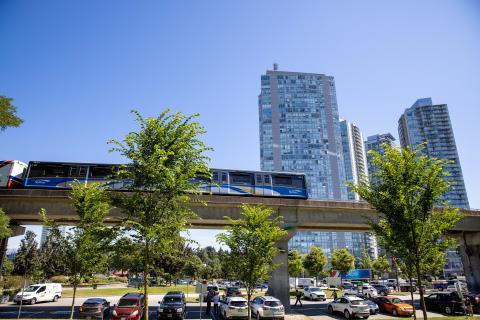The Province has introduced new legislation to address some issues created by pre-zoning large areas of BC communities for increased density. The new legislation addresses: inclusionary zoning; updates to the density bonus framework; providing local government with expanded authority to require site-specific works and services, and transportation demand management measures; and tenant protection bylaws.
Overview of Changes
Bill 16 — Housing Statutes Amendments Act, 2024 received second reading on April 9, 2024. Its main elements are as follows:
- Inclusionary zoning: The legislation would give local governments the authority to require affordable and special needs housing units in new developments including in transit-oriented areas. It requires that local governments undertake a financial feasibility analysis, and establishes consultation requirements for development of an inclusionary zoning bylaw. Inclusionary zoning cannot apply to development in which all of the housing units will be owned by specific parties including registered charities, societies and housing cooperatives.
- Density bonus updates: Establishes a framework for density bonusing that parallels inclusionary zoning, including requirements for consultation, financial feasibility analysis, and public reporting.
- Site-level infrastructure and transportation demand management: Local governments will have expanded authority to require site-specific works and services in new developments. This includes active transportation related measures such as sidewalks, benches and protected bike lanes, and transportation demand management measures such as charging stations and secure parking facilities for bicycles and scooters.
- Tenant protection bylaws: Municipalities will have authority to enact tenant protection bylaws to require developers to provide support for tenants facing displacement in cases of redevelopment, including financial assistance, assistance with finding a new place to live, and opportunities for right of first refusal on units in a new building.
Analysis
The proposed changes are intended to support the Province’s shift towards proactive planning via pre-zoning, following the passage of Bill 44 (and others) by granting additional authority to municipalities, or setting developer requirements at development permit and building permit stages.
The changes are broadly consistent with UBCM policy, including several recent resolutions endorsed by membership that sought the authority for mandatory inclusionary zoning (2022-NR16), requested tools for local governments to obtain road dedications and infrastructure upgrades at development or building permit (2023-NR15), and called for an improved approach to tenant assistance (2016-B121, 2020-EB84).
Many of these issues were also raised by member panelists at the 2024 UBCM Housing Summit.
The changes are also largely enabling. For example, the legislation would provide local governments with authority to enact bylaws for inclusionary zoning and tenant protection. In addition, it incorporates flexibility through options for cash in lieu, and provision of affordable and special needs housing on alternate parcels of land.
Finally, Bill 16 incorporates broad provisions for regulation making, including as they relate to tenant protection bylaws, density benefits, and inclusionary zoning. While it is unclear in some instances how these provisions might be used, the Province has indicated that with regards to inclusionary zoning, it will monitor how the tool is implemented and use regulation-making authorities “to provide checks and balances to ensure communities do not deter building the housing people need”.
UBCM will also monitor the implementation of the new legislative tools and communicate out further updates as they arise.

